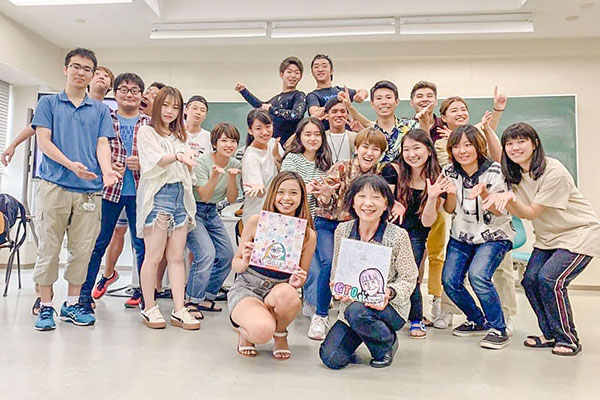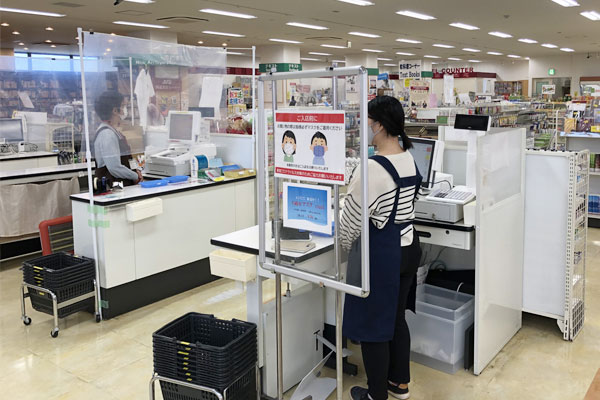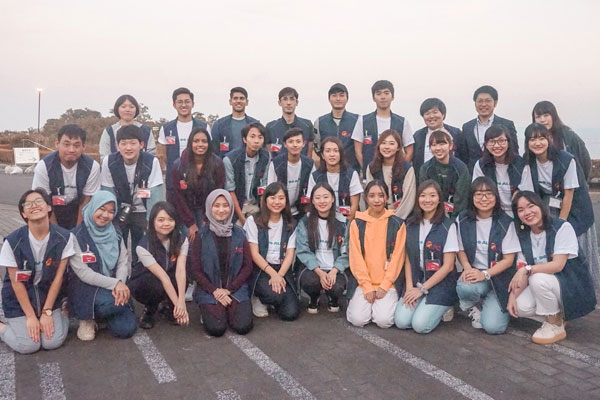お金に関わること | APU 立命館アジア太平洋大学

お金に関わること
外国における金銭の維持・管理は留学する方にとって心配なことだと思います。日本のお金についての基本情報について理解を深めてください。
日本の通貨
日本では空港のような場所を除いては、通常、日本円のみしか使用することができません。コインは、500円、100円、50円、10円、5円、1円があり、紙幣は、10,000円、5,000円、2,000円、1,000円があります。
あなたの国の通貨と日本円の交換レートを見たい方はこちらをご覧ください。

支払方法と銀行
日本では現金で支払うことが一般的です。現金は、銀行のATMで引き出すことができます。ATMは、APUのキャンパス、銀行や郵便局、ショッピングセンターやコンビニエンスストアなど様々な場所に設置されており、使用可能なキャッシュカードの種類も様々です。APUのオリエンテーション期間中に銀行もしくは郵便局の口座を開設することができます。
クレジットカード(VISA、マスターカード、アメリカンエキスプレス、JCB)は、百貨店や大型店舗では利用できますが、スーパーやレストランでは難しい場合があります。また、小切手での支払いはできません。お財布携帯の利用も最近では増えてきました。

生活費
日本は、物価の高い国だといわれていますが、APUは、生活費が手頃な地域に位置しています。実際、別府の家賃は、東京や大阪などの大都市と比べて約半分程度となる場合もあります。学生の多くが利用する公共交通機関のバスも、APU学生用の学割定期券の購入が出来ます。
APUで勉強するにあたって必要と思われるおおよその家賃や食費、その他の生活費は以下のとおりです。
支出:
| 家賃 | 光熱費 | 食費 | 交通費* | その他支出 |
|---|---|---|---|---|
|
30,000-50,000円
|
6,000円
|
30,000円
|
6,000円
|
8,000円
|
- *2回生以降のAPUへの通学に利用するバスの年間定期券の費用はタイプ別に60,000円~100,000円です。1回生の間はAPハウス(学生寮)で生活するため年間定期券は必要ありません。上記費用の交通費は年間定期代金を省いた費用です。
日本に持参するべき金額
APUに到着して銀行口座を開設するまでの最初の数ヶ月は、最小限生活するための十分な現金が必要です。最初の2ヶ月間の生活費として、20万円程度を持参することをお勧めします。あなたの国を出発する前に、あなたの国の通貨から日本円、もしくはアメリカドルへ換金しておいてください。アメリカドルは、到着したらすぐに空港で日本円に換金してください。
APU近郊には、外貨両替所がありません。なお、一部の銀行ATMでは、海外発行カードによる現金引き出しサービスを提供しています。
アルバイト
留学ビザを所有する国際学生は、日本政府によって決められた時間内でアルバイトをすることができます。セメスター期間中は週28時間まで、休暇期間中(合計約4ヶ月)は週40時間まで働くことが認められています。学生はアルバイトを始める前に資格外活動許可を取得する必要があり、APUスチューデント・オフィスが申請のサポートをしています。
アルバイトは、キャンパス内外で見つけることが可能です。キャンパス内ではカフェテリアや図書館、メディアセンターのスタッフ、授業のティーチングアシスタント等として働くことができます。
On-Campus Student Job Center
-

ティーチングアシスタント (TA)
-

APU-COOP
-

ALRCS(アークス)
また、別府は世界中の人が訪れる観光地ですので、ホテルやレストラン、ショッピングセンターといった観光業関連のアルバイトも多くあります。求人情報は求人情報誌やウェブサイトで入手できますが、学生である以上はアルバイトを優先しないように心がけることが必要です。なお、学内では日本語力を問わないケースもありますが、学外でのアルバイトの多くは少なくとも会話できる程度の日本語力が必要です。